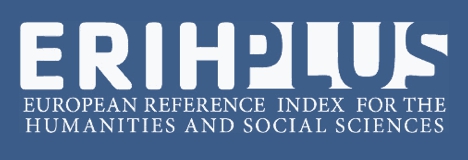The brazil’s regionalizations in the 7th year of elementary school from federal district
Abstract
This article brings a reflection about regionalization’s proposals of the Brazilian territory in the final years of Elementary School in the Federal District. The main objective is to put into dialogue the conceptualization about region with the proposals of regionalization, found in many curricular normalization documents as some of the textbooks. And, based on that, we propose an opening for a more aggregating and integrating idea of the Brazilian regions and their presentation in Elementary School.
References
ANDRADE, Manoel Correa de. Espaço, polarização e desenvolvimento. São Paulo: Brasiliense, 1973.
ARAÚJO, Gilvan Charles Cerqueira de. A presença de uma premissa categorial: a espacialidade nos conceitos-chave do pensamento geográfico. In: ARAÚJO, G. C. C; BELCAVELLO, N. O.; KUNZ, S. A. S. (Org.). Elementos de Teoria do Espaço Geográfico. 1ed. Brasília: ACLUG, 2013.
BRASIL. Ministério da Educação. Parâmetros curriculares nacionais: Ensino Fundamental (Geografia). Brasília: MEC, 2000.
______. Ministério da Educação. Base Nacional Comum Curricular. Proposta preliminar. Segunda versão revista. Brasília: MEC, 2016. Disponível em: www.mec.gov.br. Acesso em: 23 mar. 2017.
CALLAI, Helena Copetti. Aprendendo a ler o mundo: a Geografia nos anos iniciais do Ensino Fundamental. Cadernos do CEDES, Campinas-SP, v. 25, n.66, p. 227-247, 2005.
CASTELLAR, Sonia. Educação Geográfica: A psicogenética e o conhecimento escolar. Cad. Cedes, Campinas vol. 25 n.66 pg. 209-225 maio/agosto 2005.
CAVALCANTI, Lana de Sousa. A geografia e a realidade escolar contemporânea: avanços, caminhos, alternativas. In: I seminário nacional: currículo em movimento Perspectivas Atuais, 2010, Belo Horizonte. Anais do I Seminário nacional: Currículo em Movimento: perspectivas atuais, 2010. p. 1-15.
CORREA, Roberto Lobato. Algumas Considerações sobre a Análise Regional. In: Revista Brasileira de Geografia. v. 49. Nº 4. Rio de Janeiro. 1987. p. 47-52.
______. Interações Espaciais. In: (Org.) CASTRO, Iná Elias.; GOMES, Paulo César da Costa; CORRÊA, Roberto Lobato. Explorações Geográficas. Rio de Janeiro: Bertrand Brasil, 1997.
GEIGER, Pedro Pinchas. Regionalização. Revista Brasileira de Geografia. Rio de Janeiro. v. 31, nº 1. 1969. p. 5-25.
GOMES, Paulo César da Costa. Geografia e Modernidade. 6ª Ed. Rio de Janeiro: Bertrand Brasil, 2007.
IBGE. Evolução da Divisão Territorial do Brasil 1872-2010. Documentos para disseminação Memória Institucional, nº 17. Rio de Janeiro: IBGE, 2011.
JOHNSTON, Ronald John. Geografia e geógrafos: a geografia humana anglo-saxônica desde 1945. Trad. Oswaldo Bueno Amorim Filho. São Paulo: Difel, 1986.
MARTINS, Elvio. Geografia e Ontologia: o fundamento geográfico do ser. In: GEOUSP -Espaço e Tempo, São Paulo, Nº 21, p. 33 -51, 2007.
PÉREZ, Carmen Lúcia Vidal. Ler o espaço para Compreender o Mundo: a função alfabetizadora da geografia. Revista Tamoios (Impresso), v. 2, p. 17-24, 2005.
SANTOS, Milton; SILVEIRA, Maria Laura. Brasil. Território e Sociedade no início do século 21. Rio de Janeiro: Record, 2001.
SEEDF. Currículo em movimento da educação básica Vol. 4: Ensino Fundamental (anos finais). Brasília: Secretaria de Estado de Educação do Distrito Federal, 2010.
BOLIGIAN, Levon et. al. Geografia espaço e vivência: a organização do espaço brasileiro, 7° ano. 3.a ed. São Paulo: Atual, 2009.
MAGALHÃES, Claudia; SOURIENT, Lilian; GONÇALVES, Marcos; RUDEK, Roseni. Projeto Apoema. Brasília: Editora do Brasil, 2016.
VLACH, Vânia; VESENTINI, Edoardo. Projeto Teláris. São Paulo: Ática, 2016.
Keywords

This work is licensed under a Creative Commons Attribution-NonCommercial 4.0 International License.
Policy Proposal for Free Access Journals
Authors who publish in this journal agree to the following terms:
a. Authors retain the copyright and grant the journal the right of first publication, with the work simultaneously licensed under the Creative Commons Attribution License which allows the sharing of the work with acknowledgment of the authorship of the work and initial publication in this journal.
b. Authors are authorized to take additional contracts separately, for non-exclusive distribution of the version of the work published in this journal (eg publish in institutional repository or as a book chapter), with acknowledgment of authorship and initial publication in this journal.
c. Authors are allowed and encouraged to publish and distribute their work online (eg in institutional repositories or on their personal page) at any point before or during the editorial process, as this can generate productive changes, as well as increase the impact and The citation of published work (See The Effect of Free Access).





















